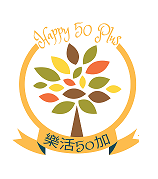
As the last month of this awful year begins, I am reminded of one of the funniest cartoons I’ve seen during the pandemic. The cartoon acknowledges that this has truly been the “Year of the Rat”!
Another animal on the Chinese zodiac had some fame back in 2011 when the book Battle Hymn of the Tiger Mother by Amy Chua made headlines. There was quite a lively national debate about “Eastern” and “Western” ways of parenting, as well as about the pros and cons of behaving like a “Tiger Mother”.
As a 1.5-generation family caregiver for an elderly parent, I think the zodiac animal I aspire to be is the Dragon. And the process by which we can evolve from the “Draggin’” daughter/son into the “Dragon” son/daughter is by empowering ourselves with information and resources.
Family caregivers are “draggin’” with fatigue and worry as our loved ones age, while often also shouldering the care of children and juggling the demands of our jobs.
Those of us who are family caregivers recognize that this responsibility will have huge financial, health and emotional implications on our own lives. About one out of every five adults is providing care to an adult who needs help with the activities of daily living – bathing, toileting, dressing, grooming or feeding themselves.
In the Chinese culture, traditionally it has been a “given” that the younger generation will care for our elders. Filial piety (孝) is the first Confucian virtue. So, it is important to first recognize the fact that most of us do not think of ourselves as “caregivers.” In our minds, assisting our parents and/or older family members with healthcare challenges and decision-making is just “helping out.” Often, responsibility for giving care just increases gradually over time.
The term “family caregiver” is applied to any relative, partner, friend or neighbor who provides assistance for an older person or other adult with a chronic and/or disabling condition. The caregiver may or may not live with the person receiving the care.
As a 1.5-generation Chinese-American caregiver in 21st-century America, I am dealing with some unique challenges on top of the already-complicated situation faced by most family caregivers in this country:
1) Our immigrant families are often small and nuclear in nature. Other caregivers might have a supportive network of relatives who could lend a helping hand. With our extended family living thousands of miles away in Asia, we may lack this critical resource.
2) As multicultural caregivers, we must be language interpreters. Earlier in our lives, many 1.5-generation immigrant children have had to help interpret for relatives who cannot communicate fluently in English. In navigating the complicated healthcare system, patients and their caregivers need to possess “health literacy.” Health literacy is the ability to comprehend health information and to use this information to make good decisions about one’s health and medical care.
All caregivers share common challenges related to finances and our own retirement security. Other sacrifices affect our employment. Many caregivers cut back on work hours, change jobs or stop working entirely.
Besides financial and career problems, caregivers are at risk for physical health and emotional problems, such as feelings of isolation. More than half of caregivers say they give up vacations, hobbies and time with friends and their social networks.
I encourage other family caregivers to empower yourself by educating yourself about all the services, benefits and other resources available to you. This is how to transform from a Draggin’ daughter/son to a Dragon son/daughter.
